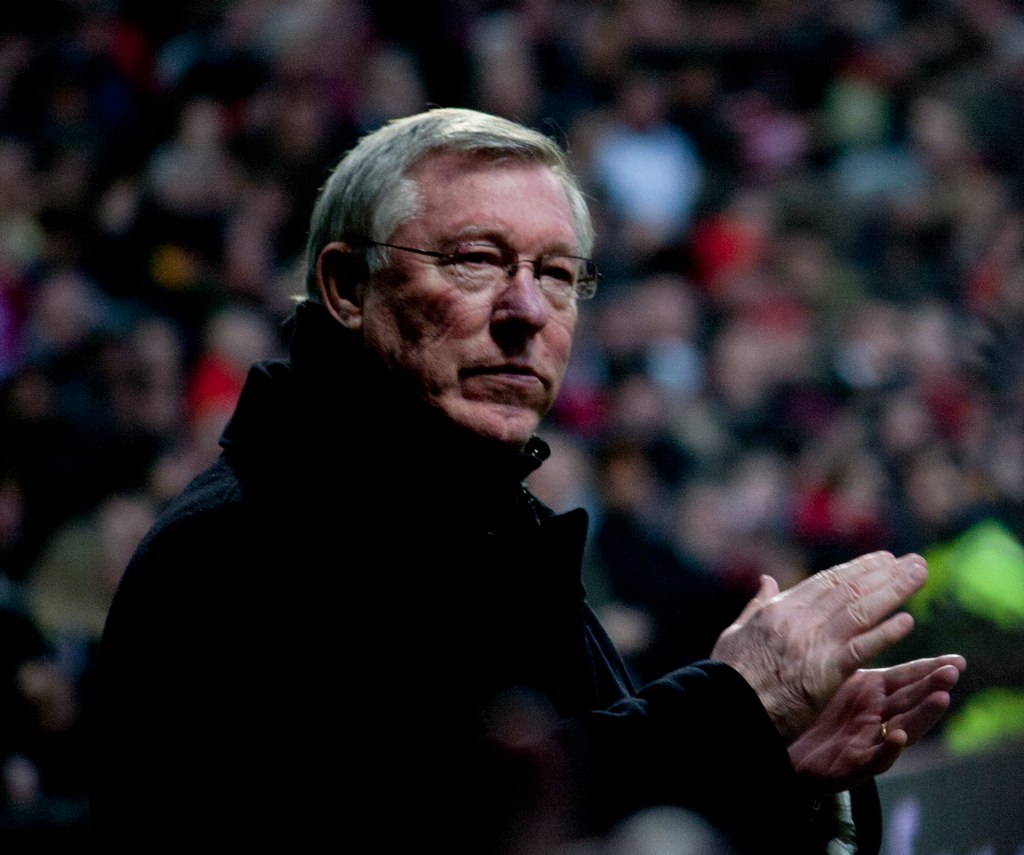What Troubles Manchester United after Sir Alex’s retirement

On 8th
Why is it then that a side that claimed the league in 2013 with aplomb now struggling to make ends meet? The club failed to qualify for the Champions League under the stewardship of David Moyes and now has crashed out of the group stages under Louis Van Gaal.
Before looking at his successors, one needs to look at what happened in the last years of the Ferguson era. As glorious as they were, had the decadence started during those final few years? It is highly ungrateful, rude and sacrilegious to suggest that one of the stalwarts of management had neglected
Fergie's final leg
Sir Alex always said that in football management success comes in cycles. And one has to prepare for the next cycle by injecting fresh blood and gradually replacing the old ones when they are at their zenith. This was done spectacularly during the famous rebuilding process by Sir Alex in the 2002-2006, when he gradually brought in Rio Ferdinand, Cristiano Ronaldo, Wayne Rooney, Park Ji Sung, Nemanja Vidic, Patrice Evra and Edwin Van Der Sar. This core of expertly recruited players were responsible for the purple patch in Fergie’s last 6
During the last 6 years, Fergie invested in the region of 160 Mn pounds to lay the foundation for the next cycle. However, most of these players and a few from the academy failed to live up to the club's standards and by now have been moved on or are at the fringes of the current squad. This crop included the likes of Nani, Ashley Young, Anderson, Tom Cleverley, Smalling, Phil Jones, Berbatov etc.
The fact that Ryan Giggs had to play till his 40s and Paul Scholes had to come out of retirement spoke volumes about the lack of depth and quality in the squad. Although United sailed to victory in
The Chosen One
The United board is renowned for its 'patience is a virtue' stance when it comes to managers, amply exhibited by the six-year contract to Ferguson’s successor, David Moyes. After all, he had been handpicked by the Great man himself and was affectionately termed as ‘The Chosen One’ by the fans. Soon upon arrival, Moyes identified key areas of development in the squad like the left back position, the right back and the most-talked-about central midfield. All of his pursuits ended up in failure, with United signing only Fellaini on Transfer deadline day. The simultaneous loss of David Gill from the club did not help transfer matters either. The failed transfer window was one of the major reasons behind the undoing of Moyes.
Several of the players that Moyes inherited from his predecessor: Patrice Evra, Rio Ferdinand, Nemanja Vidic, Ryan Giggs and Michael Carrick were 32 or older. Compounding the new manager’s problems was the injury and loss of form of Robin van Persie. Then again, that was a ticking time bomb waiting to go given the striker’s injury prone nature.
Having inherited an
Another massive concern for Moyes was his credibility and reputation in the United dressing room. 11 years of impressive and diligent work at Everton hardly earned him legendary status in Manchester United. Even junior players like Anderson, Tom
His PR skills did not do him any favors either. His reaction to defeats were miserable, and his frequent sad expressions looked like admissions of guilt. Before the home game against Liverpool, the manager said that United’s arch rivals were the favorites. After the home defeat in the Manchester derby, he said United must aspire to city’s standards. Reactions as feeble as these coupled with humiliating losses and insipid performances against one team after another began his downfall, and slowly he fell out of favor with the fans as well as the players.
To add to the evident mismatch of mentality was the playing style under the new manager. United fans all over the globe had been treated to expansive and imaginative football for 2 decades which had famously been termed as playing the ‘United’ way. On the contrary, Moyes’ men started playing defensively, with caution etched on every move they made. The adventurous through ball here or an audacious 40-yard cross-field pass there were gradually replaced with mundane square-and-back passes. Compounding the manager’s woes was the absence of a string of positive results which could have anesthetized the supporters’ pain and bought him much needed time, and a couple of more transfer windows to rebuild his squad.
Just 10 months into his six-year contract, the Scotsman was relieved of his duties marking the end of a disastrous spell - United finished 7th in the league and were thrown out of next year’s Champions League. United’s most decorated player Ryan Giggs took over as interim manager, and Louis Van Gaal was entrusted to guide the club back out of the dark.
Van Gaal and his steep fall
Van Gaal had the
The Dutchman had an explosive transfer window with the exciting arrival of big money targets like Angel di Maria, Ander Herrera, Luke Shaw and Daley Blind. In pre-season, United defeated the likes of Real Madrid and Liverpool.
The Dutch master managed to restore stability in the side by bringing back Champions League football and infused optimism for the 2015-16 season among the supporters. His wins against Liverpool,
Things, however, have turned sour for the gaffer, and at the heart of it is the rigidity of his methods. A team renowned for their attack-minded and exciting brand of football have the lowest percentage of forward passes (30%), and their tally of sideways passes is joint second. United have taken only 80 shots-on-target which stands in pale comparison to City’s 134. United seldom excite anymore, and teams visiting Old Trafford are full of confidence and hope these
The recent positive performances against Chelsea and Swansea are encouraging, and it seems that Van Gaal has taken inputs from his lieutenant Ryan Giggs, but United are a far cry from what they used to be. They just about managed to crawl over the line against Sheffield in the FA Cup, and drew 3-3 with Newcastle after taking a 2-0 lead within 38 minutes of the first half.
The board is still patient with the Dutch manager amidst cries from fans for his sack and trusts him to get things back in order. They are no strangers to what patience can bring, but at the same time in this

Comments
Sign up or log in to your account to leave comments and reactions
0 Comments